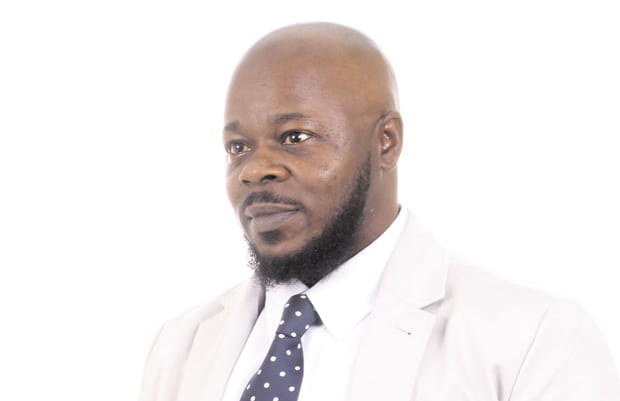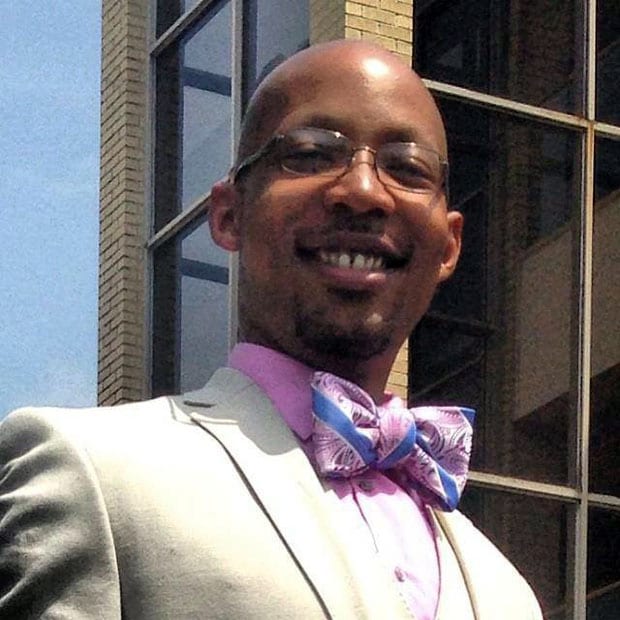Despite advances in gay rights, race is still at the forefront for black LGBT Texans
MATHEW SHAW | Contributing Writer
mathews.yb@gmail.com
The Supreme Court’s marriage equality decision may have been handed down more than a month ago, but for Carter Brown, a black transgender man, there are still more fights to be fought.
“I see marriage equality as a separate entity,” Brown said. “I don’t see marriage equality in the same sight as fighting for someone’s life. Black people are fighting for their lives to matter.”
Brown is the founder and executive director of Black Transmen, the first national nonprofit organization created by black transgender men and transgender women.
Marriage equality is not a priority for the black LGBT community because of other issues they have to face, Brown said. For him, the intersection of his trans identity and his racial identity puts him in a position where he has to try to protect himself from anti-transgender bias as well as racism, which affect his ability to be employed, secure housing and even his safety.
Brown said he feels more oppression as a black man than as a black transman not only because he feels liberated by his transgender identity, but also because of how he feels society responds to him as a black male as opposed to as a black female.
“I feel like I have to work harder to prove my skills and intelligence as a black man than maybe as a black female,” he said. “I believe that society expects black females to succeed in corporate America, but black men … they have to work twice as hard.”
Craig McNeil, Dallas County assistant district attorney, said his race is more apparent to people than his sexual orientation.
“When I’m in the courtroom and I’m wearing my tie and my suit, people see me as a lawyer,” McNeil said. “But when I’m out at the grocery store and I’m wearing a T-shirt and flip flops, people see me as a black guy, and that can be a negative impression for them or not.”
Even though he’s a lawyer with a badge, McNeil said he’s mindful of what he’s doing if he gets pulled over by the police.
“That’s something I learned as a young man — 10 or 12, your parents give you the talk,” he said. “You gotta treat the police with respect and dignity or they’re going to hurt you. I think every black child, especially sons, gets that talk.”
Fort Worth resident Bianqua Hunter, however, said it’s harder to deal with being gay than being black.
“At least when I’m black, I have the support from the rest of my black community,” Hunter said. “But if I’m lesbian, then I might lose those people as well.”
When her mother found out she was a lesbian, she did not talk to her for two years, time she can never get back because her mother is now deceased.
“My mother disowning me; that’s something that impacted my life,” she said. “It actually made me question my identity at the time. I wondered, ‘Is there a way I can not be gay? To not pray this away? What can I do to not be gay? If I go marry a guy who’s great to me, will that make me better?’ But then I realize I would be living for everyone else and not myself, so I would make everyone else happy but I would be miserable.”
Gay black men, however, have a harder time being accepted in the black community than do lesbians, she said.
“As a lesbian, you’re going to be accepted faster than a gay male in the black community because as a male you’re now a sissy, you’re not a man,” she said. The reason for this is because lesbians can still bear children.
“During the time that my mom didn’t talk to me, if I gave birth to a child, I know that would have ended her stubbornness,” she said. “She would have welcomed me back in because there was hope that I might be straight.”
Furthermore, a black woman can be bisexual, but a black man cannot.
“There’s no such thing as a black bisexual male,” she said. “The way they look at it, you bent over, you let a male touch your parts that weren’t supposed to be touched, you’re gay. No real man does that.”
The reason bisexual women have an easier time is because they fulfill a fantasy for men, she said.
“Every guy has a fantasy of two women, so when a guy hears that you’re bisexual, their first thought is, ‘Oh, can I join?’” she said. “Her female friends who can understand the curiosity of another woman, they’re going to accept her, too.”
Alex Byrd, co-pastor of Living Faith Covenant Church in Dallas, who identifies as bisexual, said there is a super-imposed rift between his black identity and his LGBTQ identity.
“There are thoughts between those two communities that pit my blackness against my gayness, if you will, as if I’m supposed to be one or the other,” Byrd said. “It comes, I believe, from the practice that to be gay is to be a white male. A white gay man is the model of what gay is.”
Brown said racism in the LGBT community works by separating each other.
“At the top of the chain is gay white men,” Brown said. “And then at the bottom of the chain still is black trans people. Once people claim their gay and lesbian identity, then they stick to those communities.”
Denton resident Christian Watkins noted the lack of inclusiveness in advertising made by and for the gay community.
“There’s not a lot of blacks included in the advertising,” Watkins said. “There’s not a lot of Asians included in the advertising.”
Watkins has personally experienced rejection on account of his race and has heard stories from other people as well.
“I’ve had people [on Grindr and Jack’d] outright block me because of my race,” he said. “On their profiles, they’ll blatantly say no to certain ethnic groups.”
McNeil, however, said he is not bothered by the lack of inclusiveness because he lives in an urban community.
“We’re kind of our own culture in the LGBT community,” McNeil said. “Everybody who doesn’t have a six pack and blonde hair is about 65 percent of everyone else. Every part of our society is represented by someone who’s not really representative of the culture as a whole.”
As far as the black community accepting family that are LGBT, Brown thinks there’s still a lot of work to be done. Black people were oppressed even in religion, and the only time they could find fellowship was on Sundays at church where they would listen to a white man preach about how slaves should stay in their place.
“The black community has a long, long history of religious abuse,” he said. “And a lot of black people grow up in spiritual households or have a strong spiritual influence in some form or another.”
Other people’s flaws and sins are not magnified like gays’ and lesbians’ are, he said.
“The black church will find out someone is gay or lesbian or transgender, they’ve been known to cast that person from church,” he said. “However, the church will turn around and take up a collection to have another church member get their family member out of jail for a crime they’ve committed, or the pastor’s probably having an affair with somebody in the church and no one’s condemned to Hell for that.”
Brown believes homophobia is different in the black community because of how black men are expected to behave.
“The black community is more matriarchal, however men are still expected to be very macho, very hypermasculine,” he said.
Byrd disputes that. “There is no credible data that can prove [the black community as any more homophobic than any other community],” he said. “Why are African Americans singled out as being more homophobic? My theory is that a narrative has been created around that issue, and I’m not sure that it did not come from the African American gay community.”
Byrd said the narrative came as a result of black LGBT people talking about their experiences with the larger black community, and that resulted in the idea that the black community is more homophobic.
“The African-American gay community often will use that narrative to give them more speed toward that goal line,” he said. “So if I’m oppressed by white folks and I’m oppressed by my own folks, then I’m more oppressed.”
Watkins believes things have improved over the years, saying that even his mother has acknowledged coming a long way since his coming out.
“I grew up in church and I know who I am and I know who God created,” he said. “I am beautifully and wonderfully made in God’s image. No man, no woman, no doctrine can keep me from believing that.”
Brown said he’s seen a magnitude of progression on race relations in America. For there to be more progress, he said that people with privilege need to understand what their privilege means and use it to help others.
“Privilege doesn’t exactly mean giving away all your money or changing your neighborhood or your neighbors,” he said. “Privilege should mean recognizing that you have privilege and should actually care enough to give back to those who have less privilege.”
Ways that privileged people can give back include helping minority schools, building a shelter for trans people or using one’s business to offer services to the LGBT community.
Even those without privilege have more they have to do, Brown said. “I’m specifically speaking of those who just complain. We need everybody to take action, to put in some work so we can collectively make the changes that we want to see in the world.”
This article appeared in the Dallas Voice print edition August 7, 2015.







